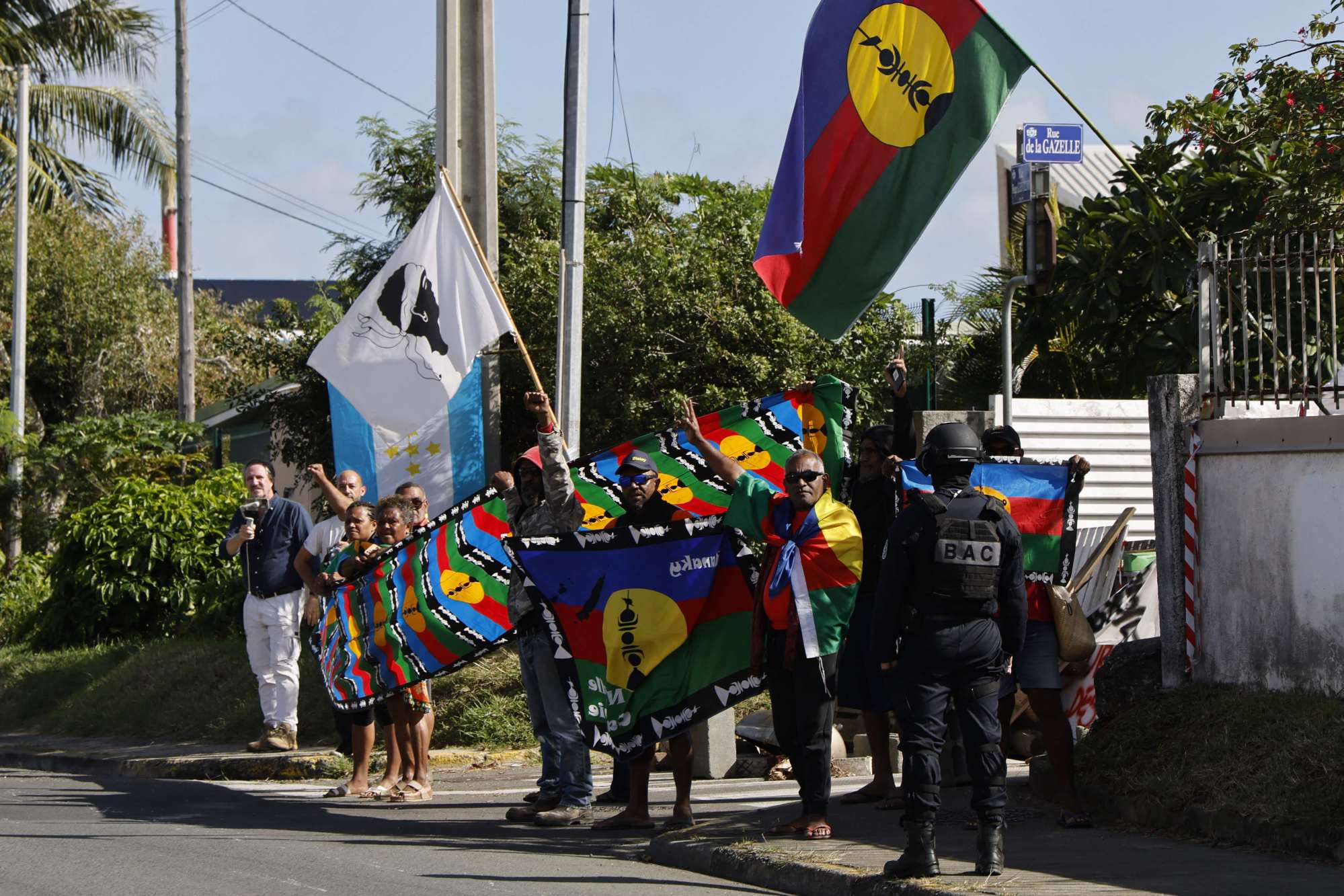
New Caledonia riots: France’s Emmanuel Macron delays voting reform, TikTok ban stays
- The president held talks with local leaders on the French-ruled Pacific island amid deadly protests sparked by the controversial measure
- France’s top court declined to suspend a temporary TikTok ban, which had been imposed to tackle street violence.
French President Emmanuel Macron said on Thursday after a day of talks in New Caledonia that he would delay a voting reform that had triggered deadly riots on the French-ruled Pacific island, and try to seek a new political agreement.
The decision came the same day France’s top court declined to suspend a temporary ban of short video app TikTok in New Caledonia, which had been imposed to tackle street violence.
Speaking in the capital Noumea after meeting local political leaders, Macron said his ultimate aim was still to sign the measure into law, but only if peace returned and a broader pact on the island’s future could be forged.
“I am committed to ensuring that this reform will not be implemented by force,” he said in front of the French High Commission building.
At least six people have died in more than a week of riots over the plans that would allow thousands more French residents who have lived in New Caledonia for 10 years to vote.
Paris says the measure is needed to improve democracy – almost a quarter of the 271,000 inhabitants identify as European, mainly French. Leaders of the indigenous Kanaks want the reform rescinded over fears it will dilute the their vote and make it harder for any future referendum on independence to pass.
Macron, who arrived on the island early on Thursday, said his immediate priority was to restore calm, reclaim areas hit by violence and disorder, and help bring about political dialogue.
A state of emergency would be lifted if roadblocks were removed, he said.
“Within a month” he would take stock of the situation, “and make decisions on the institutional follow-up to be given,” he added.
Macron said the voting reform had “democratic legitimacy” after being passed by lawmakers in Paris. He said there was no doubt over the legitimacy of a 2021 referendum that had showed an overwhelming majority against independence.
Pro-independence parties boycotted the plebiscite and many indigenous Kanaks refused to participate, citing the Covid-19 pandemic and other reasons. Other local leaders want the voting reforms to be suspended to give time for a broader dialogue over the future of the island.

Electoral rolls were frozen by the 1998 Noumea Accord that ended years of violence by outlining a path to gradual autonomy. But the pact’s expiry in 2021, and a Kanak boycott of the independence referendum led to a political impasse.
Earlier on Thursday, Macron flew by helicopter over areas wrecked by arson, as bulldozers worked to clear away rubble.
He described the riots as “an unprecedented insurrection whose degree of violence no one would have anticipated”, and said additional security totalling 3,000 personnel would remain, even during this summer’s Paris Olympics if required.
Macron lamented that there was no “common vision” for New Caledonia’s future. He acknowledged that inequalities had grown and an ugly undercurrent of racism been exposed by the protests.
Last week, French authorities banned the TikTok app, which the government during a bout of riots on France’s mainland last summer said helped rioters organise and amplified the chaos, attracting troublemakers to the streets.
On Thursday, the Conseil d’Etat, France’s highest administrative court, said it would not pause the temporary ban “in the absence of any evidence of immediate and concrete consequences for the situation or interests of the applicants, and in view of the public interest in restoring public safety and tranquillity”.


